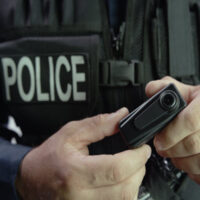Body Cameras And Proving Police Misconduct

In cases involving police misconduct, there is often the need for a nuanced defense approach in order for justice to prevail. There are an array of evidence options, and the advent of body cameras has emerged as a pivotal tool for holding law enforcement accountable.
When utilized effectively, body cameras can unveil important truths, but as is true with all forms of misconduct documentation, the evidence needs to be used in a way that supports a victim’s position. There are potential limitations, but a Baltimore police misconduct lawyer can help if you want to use Maryland body camera footage to build a compelling case that stands up to legal scrutiny.
The Strengths and Challenges of Footage
Worn by police officers, body cameras document interactions between law enforcement and members of the public. These devices capture real-time footage, and there are several ways in which the footage gathered can contribute to police misconduct cases.
- Objective records. Body cameras provide an unbiased and objective account of events, offering an unfiltered perspective on the actions of both the police officer and the individual involved in an incident.
- Enhanced accountability. The presence of body cameras promotes accountability among law enforcement officers. Knowing their actions are being recorded encourages officers to adhere to protocols and behave responsibly during interactions.
- Evidence preservation. Body camera footage serves as a crucial piece of evidence that can be used to corroborate or dispute accounts of an incident. It preserves an accurate record of events as they unfold.
- Public transparency. Because footage fosters transparency, it often allows the public to scrutinize law enforcement practices. As a result, officers can be held accountable.
While body cameras are a powerful tool in revealing police misconduct, there are instances where they can complicate a person’s defense strategy.
For instance, body cameras may not capture the entire scene or provide a comprehensive view of the incident, so certain crucial details could be missed. There is also the possibility of individuals perceiving the action’s recorded differently. This subjectivity can be exploited during legal proceedings to cast doubt on the validity of a misconduct claim.
And like any form of technology, body cameras are not infallible. Technical glitches, poor video quality, and malfunctions can compromise the accuracy and reliability of the footage.
Accessing Body Camera Footage
A Baltimore police misconduct lawyer who has experience in these types of cases knows how to secure body camera footage to fortify cases. In many jurisdictions, lawyers can file public records requests to obtain copies of the footage relevant to their client’s claim.
If law enforcement agencies are unwilling to release the footage voluntarily, lawyers can issue subpoenas to compel the production of the body camera footage.
Is body camera evidence involved in your law enforcement misconduct case? The legal team at Iamele & Iamele, LLP has the experience you need. Our attorneys work to hold police accountable and prioritize a legal system that upholds the rights of individuals and promotes transparency in law enforcement practices. Contact us to schedule a no-cost consultation.

